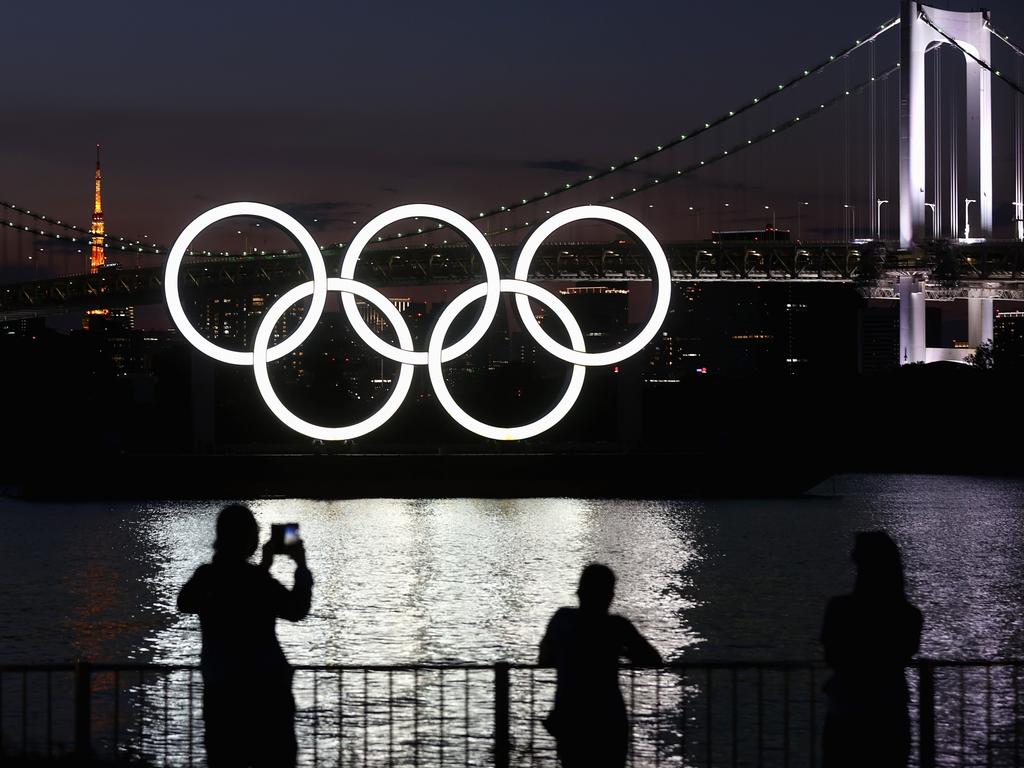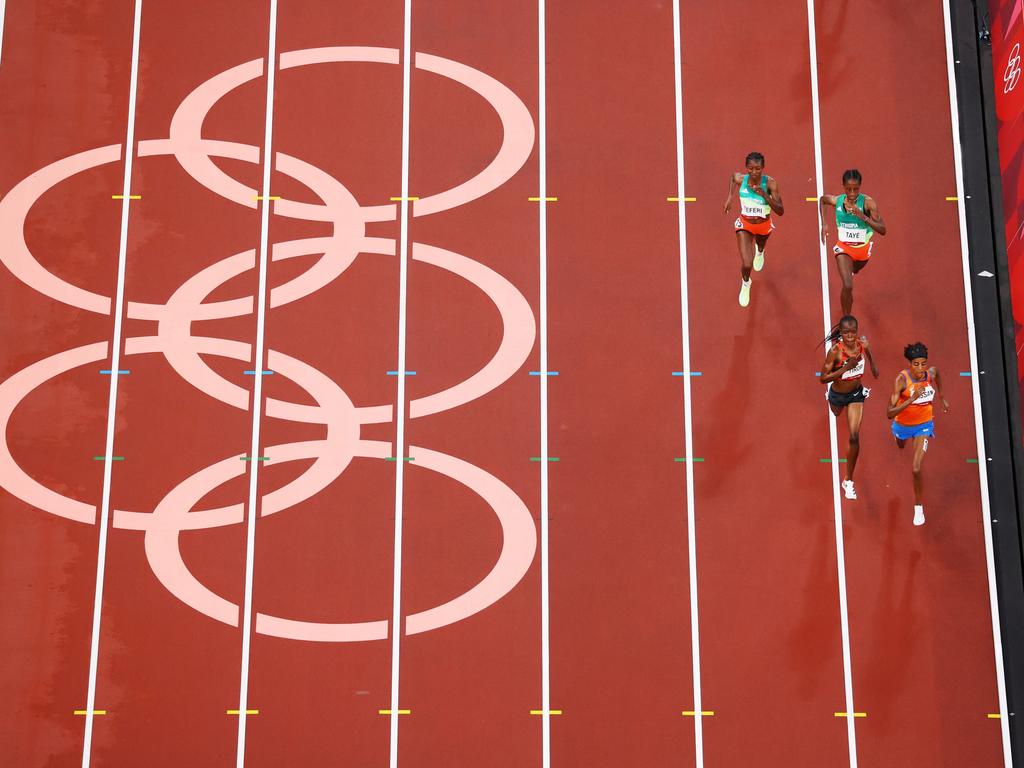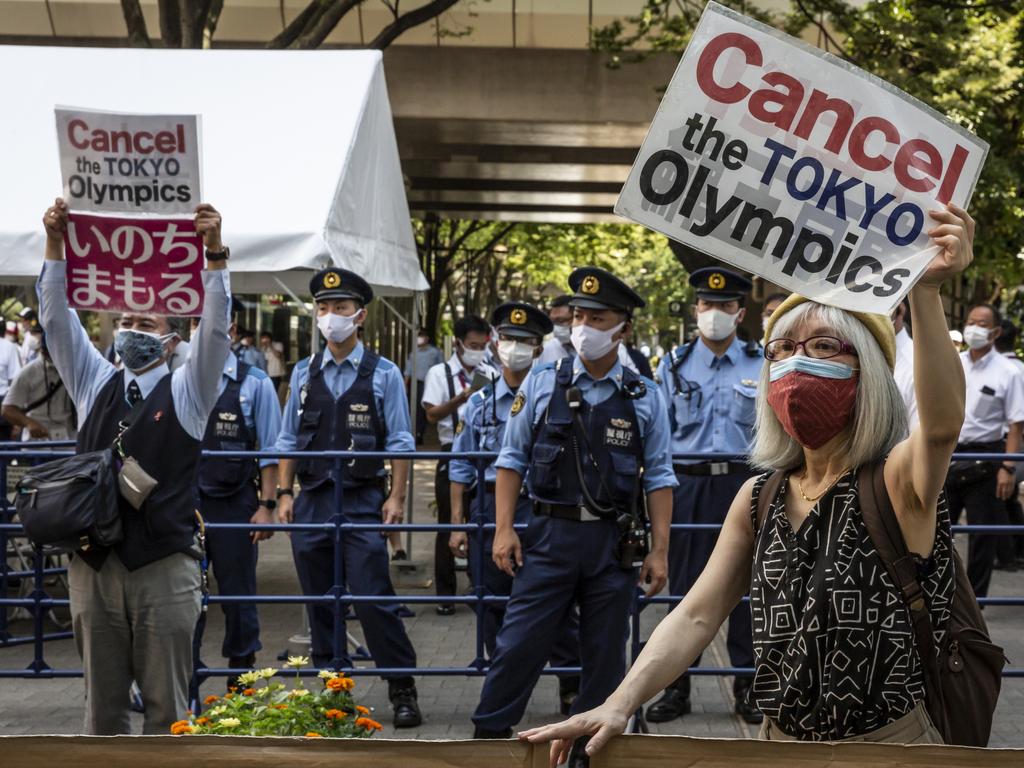Tokyo Olympics primed to lose $30 billion with no way to recoup losses
Economists believe the Tokyo Olympics will cost around 400 per cent over its original budget, with most of it unable to be recouped.
Each Olympic Games since 1960 has overrun its budget by 172 per cent on average, according to a University of Oxford study.
However, economists believe the Tokyo Olympics will cost around 400 per cent more than its original budget, and most of it will not be able to be recouped.
Combining a postponement, a pandemic, and a Summer Games that were already running well above budget before the pandemic made the 2020 Olympics one that could lead to an $800 million taxpayer bailout, the New York Post reports.
It is forcing Japanese taxpayers to bear the cost for an Olympics that barely one in 10 of them wanted to happen, in addition to the Tokyo Organising Committee accruing billions in debt.
Smith College economics Andrew Zimbalist and author of Circus Maximus: The Economic Gamble Behind Hosting the Olympics and the World Cup, told The Post he predicts the Organising Committee spent $35 billion on the Summer Games — a far cry from the $7.3 billion of its initial budget.
RELATED: Aussies’ classy Olympics act melts hearts

RELATED: Aussie produces perfection to win gold
Zimbalist expects the local committee will lose at least $30 billion on Tokyo 2020. Both Zimbalist and economist Victor Matheson said that there was no possible way for the Organising Committee to recoup losses, even if it had allowed fans.
“They’re going to get back somewhere in the neighbourhood of $4.5 or $5 billion. So there’s a tremendous deficit there,” Zimbalist said.
Just postponing the Olympics by a year amounted to an extra $3 billion in expenses from facilities, maintaining Covid-19 protocol and additional funds for public health measures. The Organising Committee had to negotiate new contracts with venues and delay selling off the Olympic village dormitories as condominiums, among other increased costs due to the delay. Overall, Zimbalist estimates the delay carried a price tag of $5 billion.
Matheson, an economics professor at College of the Holy Cross and author of Going for the Gold: The Economics of the Olympics, told The Post that going forward with the “huge disaster” Summer Games costs the Organising Committee “more than they’re saving” instead of cancelling an increasingly expensive and dangerous Olympics.
The IOC contracts out host duties to local Organising Committees which accrues the costs of upholding health and safety guidelines, building the Olympic village and renting or constructing stadium space.
All of this is supposedly repaid through the profits of domestic sponsorships, licensing agreements, ticket sales, and increased tourism. With international travel for fans coming into Japan banned, tickets refunded because of the state of emergency and domestic sponsorships — which were record-high in Tokyo at around $3 billion prior to the cancellation of spectators — sponsors have pulled out of the Games in fear of it becoming a liability.
Continuing with the Games required substantial funds from the Organising Committee.
RELATED: Rival’s ‘priceless’ reaction to Aussie star

However, for the IOC, making sure they went on, according to Matheson, was its sole priority.
“The IOC keeps the media rights and they keep international sponsors and that’s how they generate their revenue. So, for this year, the combination of the TV rights and the international sponsorship rights are going to be something around $5 billion,” he said.
“As long as the games go on, that’s not affected at all. So, in an odd way, despite this disaster of the Olympics going on, the IOC themselves are coming away with all of their revenue streams.”
Not even major stars getting Covid-19 or sitting out of the Olympics altogether could influence the profits the IOC stands to make, as they simply require there being enough athletes to compete. Instead, star power is needed by the local organising committee for their ticket sales profits.
“Whether the USA basketball team is being led by Steph Curry and LeBron James, or a local high school team from Honolulu doesn’t make any difference at this point because they’re not selling any tickets to that game,” Matheson added.
A spokesperson for Tokyo 2020 said that “ticket revenues are expected to decrease significantly,” however the Organising Committee declined to comment on how much it expects to lose, how many tickets were sold, and the value of those tickets, under the rationale it had not decided whether the Paralympics would have spectators. Matheson believes the Committee lost $1 billion in ticket revenue.

“The IOC doesn’t care whether there’s any fans [at the Olympics] anymore, and they don’t really care about the political upheaval, they don’t care about the health risks to the Tokyo people. All they care about is getting these events on television and nothing else matters because they get all their money from the TV and they don’t bear any of the costs of politicians losing their jobs, people getting sick or the cost of hosting the games,” he said.
Moving forward, both Zimbalist and Matheson believe the 2020 Olympics will dissuade other nations to take on hosting responsibilities, which has already become the trend. Numerous bids dropped for the 2022 Winter Olympics, and five European cities dropped out of the race for the 2024 Summer Olympics. According to Zimbalist, the lack of enthusiasm toward hosting is one of the reasons the IOC cemented locations for both 2024 and 2028.
“[The IOC] put all of the bidding behind closed doors so that we can’t see cities dropping out and the IOC doesn’t have to face the humiliation and embarrassment of cities having referendums and population voting overwhelmingly that they don’t want to do it,” he said. “They already had the problem of cities not wanting to host the games or fewer and fewer cities being willing to, and this will only exacerbate that.”
This article originally appeared on the NY Post and has been republished with permission.



